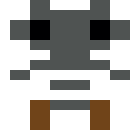Marc enjoined me to buy and play The Beginner’s Guide and let him know what I made of it.
Here are my first thoughts at the encountering of “the puzzle”.
When I get to it, it is explicitly declared to be ‘a puzzle’. This clearly sets it apart from – and is meant to set it apart from – the previous gameplay that has had no such challenges. Slightly puzzled (no pun intended) but eager to press on I put my puzzle solving hat on. This game has been sold to me as a narrative-driven experience so I have left that strictly logical thinking cap at home. I’m now – seemingly – asked to kindly put it back on.
I spend a minute or two (or maybe three-four-five) in silent contemplation and experimentation. Then the voice-over tells me how to solve it. At least I think that’s what it tells me but I fail to pay attention as I’m not expecting any such thing to happen. I have now been given the solution and yet not given the solution to this puzzle. Also, I have seemingly been judged and found wanting in that I did not solve the puzzle quickly enough to avoid being given the easy way out. Worse still I have been given the solution but I’m still not getting anywhere. I decide that the game is calling me stupid and treating me as a kid. I retort that it’s the game thats stupid. If you’re not a puzzle game, I tell it, don’t try to do puzzles. You obviously suck at it. Stick to whatever it is this is mainly supposed to be. I rage a bit. Then, though some combination of subliminal memory and intuition I come across the solution.
Once on the other side and with some semblance of logical skill set identity restored I can once again take up the role of art appreciator. The puzzle door must be locked behind me (oh yeah, spoiler alert) which would seem to be a callback to the game about moving backwards. In the previous game at least we could see the past while moving ahead. But apparently that too is a closed off territory. Maybe we need to let go of the past moving forward. And such.
In conclusion, it is on the face of it a game that invites us to learn about the creator of the games. Given that The Stanley Parable very much invites the player to be conscious of his or her player status, I would say that my experience as a very self conscious puzzle solver is also at least part of the concept.

